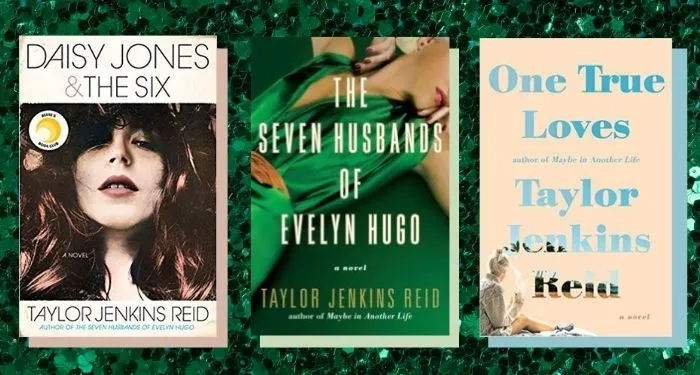Anne Mai Yee Jansen is a literature and ethnic studies professor and a lifelong story lover. She exists on a steady diet of books, hot chocolate, and dragon boating. After spending over a decade in the Midwest and the Appalachians, she returned to the sun and sandstone of California’s central coast where she currently resides with her partner, offspring, and feline companions. Find her on Instagram @dreaminginstories
Some people are book nerds from the start (myself included), but that’s not the case for everyone. When I was in college, my partner didn’t see himself as a reader, even though he read more in magazines each week than I did in books. One day, he told me he felt like reading a book and asked if I could recommend one to him, please?
Y’all: the pressure was real. I suspected that finding a good match might ignite something for him, but choosing poorly could further alienate him from the world of books.
This story has a happy ending. I set him up on a book date with a popular sci-fi read that appealed to his logical mind and love of adventure. He’s never looked back. Now he reads all kinds of books I’d never think to pick up, and it’s pretty cool to see how different our reading tastes are.
So, how do you get into reading? How does one simply begin reading as an adult? There are so many books published annually–estimates range from a few hundred thousand to a few million, depending on whether or not you include self-published books and audiobooks. How can an aspiring reader find a book that works for them?
Don’t let the numbers intimidate you. Here are some pointers to help you get started.
Book Deals
Sign up for our Book Deals newsletter and get up to 80% off books you actually want to read.
1. How to Choose a Book You’ll Like
It’s common for people to feel as though they don’t know where to start with books. At the same time, most people have clearly defined media preferences. So, take a cue from yourself to figure out what direction to take with your reading.
- Examine your viewing preferences. What types of TV or films do you enjoy watching? If you like Lovecraft Country, that will lead you in a pretty different direction than if you’re a Bridgerton person. Maybe you love a good comedy special or an intriguing mystery series. Whatever your viewing habits are, they can point you toward reading material. Start by looking for books that share similar characteristics to what you like to watch.
- Consider your lifestyle. How much time do you have? This might help you decide whether you want to sink into a big, chunky novel or seek out a collection of short stories, essays, or poems.
- Think back to what you liked as a kid. If you have positive memories of reading or being read to as a child, use those as a foundation for getting back into reading. Were there specific types of stories you enjoyed? Or perhaps there was even a specific book you liked. Whatever you used to like about reading, see if you can either revisit that or find books that have similar qualities.
2. Where to Get Recommendations
There’s no shortage of people available to recommend a good book, so here are some options. Just remember to read what you want to read, not what you think you should read.
- Ask your local librarian or bookseller. It’s their job to be knowledgeable about a wide variety of books, and they’re always more than happy to help you find some titles that you’ll enjoy.
- Scroll through some lists online. If you’re reading this, you know about Book Riot…and lists are a huge part of what we do! Once you have a sense of what type of book you’re looking for, you can also find lists other readers have put together on sites like Goodreads (their tagline is literally “meet your next favorite book”).
- Check out the bestseller lists. You can always just do an internet search for “bestselling books,” or you can look at some of the more widely circulated booklists. The New York Times bestseller list is one of the most well-known. Other great resources are USA Today’s Best-selling Booklist and IndieBound’s bestseller list.
- Browse prize-winning books. You can go for the general book prizes like the Pulitzer Prize in fiction, nonfiction, poetry, or memoir; the Nobel Prize in literature; or the International Booker Prize. Note that those prizes tend to gravitate toward “literary fiction,” so it may help to know there are book prizes in almost every genre out there. Among them are the Hugo Award for sci-fi, Nebula Awards for fantasy and sci-fi, Bram Stoker Award for horror, and the Agatha Awards for mystery, to name just a few of the biggies.
3. How to Pick a Format
The last thing you want is the format of the book to stop you from reading. For instance, I tend to read in bed at night. For a long time, I used a red camping headlight to read paper books, but lately I’ve switched over to a backlit ereader because (moment of truth) I got sick of my book falling on my face when I accidentally fell asleep.
- Consider the context. When and where will you be reading? When I’m traveling, I like to use an ereader because I can fit several books onto one small portable device. But when I’m at home, I love the feel of a physical book in my hands. Think about your own preferences and what’s convenient for you.
- Select a format. Do you prefer reading or listening? E-books or paper? Standard or large print? Whether your choices are based on preference or need, most libraries have a wide variety of format options, especially for popular or new books, to accommodate different readers. Of course, if you’re purchasing your own books, you can choose what’s best for you!
- Keep your needs in mind. If you have trouble with your eyesight, the adjustable text size feature e-readers offer may be crucial for you. Audiobooks and large print books can also help there.
4. How to Stay Motivated
Everyone finds motivation in their own way. Whether you’re driven by social accountability or data (or anything in between), there are many options to keep yourself motivated.
- Join a book club. Most libraries and independent bookstores have book clubs. They’re a great way to challenge yourself to read a wider variety of books, and if you’re socially motivated, then they can work to incentivize you, too.
- Find a bookish podcast. How to choose? It comes down to your own personal preferences. What type of podcasts do you find engaging? I like humor and conversation, so one of my faves is the weekly I’ll Read What She’s Reading podcast, which is a podcast/book club combo hosted by three super fun(ny) women. You can also find specialized podcasts that fit your tastes. For example, a more focused podcast I adore is Books & Boba, which features books by Asian American and Asian writers and often includes conversations with the authors. Let your own tastes guide you.
- Log your books as you read them. I like Goodreads for this, but there are lots of different websites or book tracking templates out there you can use to keep track of what you’re reading. You can also keep track of the books you want to read or refer back to your records when friends ask you for recommendations!
- Stay on top of new releases. There are many great ways to keep your fingers on the pulse of the literary world, but one of my favorites is NPR’s Book of the Day podcast. The daily episodes are short and cover all genres of reading.
5. How to Develop a Reading Practice
Once you figure out what you love to read, it can be easy to keep going. But some readers stagnate or simply get tired of what once brought them so much joy. Or their tastes change, but they don’t pause to think about that. So remember to keep evolving.
- Challenge yourself. Many other websites offer annual “read harder” challenges with lists that direct you toward different types of books, but leave the specific titles up to you. Check out Book Riot’s 2025 Read Harder Challenge for an example.
- Join a book club. Many book clubs will read a broad array of books rather than sticking with one genre or style. They can help you stretch your boundaries.
- Set up a book exchange. It can be really fun to invite a bunch of your friends over for a book exchange. Each person can wrap a book they enjoyed reading and bring it to the party. Then, people can swap books or even play a game to win (or steal!) books.
- Set goals. There are different kinds of reading goals you can set. You can go for quantity, setting a specific numerical goal for how many pages or books you want to read in a month or year. Or you might have specific books you want to read, genres you plan to experience, or themes you wish to explore. Whatever the goal is, this can be a strong motivator for you.
- It’s okay to DNF. If you’re not enjoying it, do you need to finish it? Sometimes, reading is a trial-and-error process, so give yourself permission to stop reading if a book isn’t working for you. Maybe in high school, it was important to push yourself to finish a book you didn’t like, but nobody’s grading you now.
6. Have fun!
Read what you like and take as long as you want to do it. There’s no right or wrong way to go about this. So let your heart guide you and have fun finding your readerly path. I hope you have lots of happy surprises and memorable moments along the way!



















 English (US) ·
English (US) ·